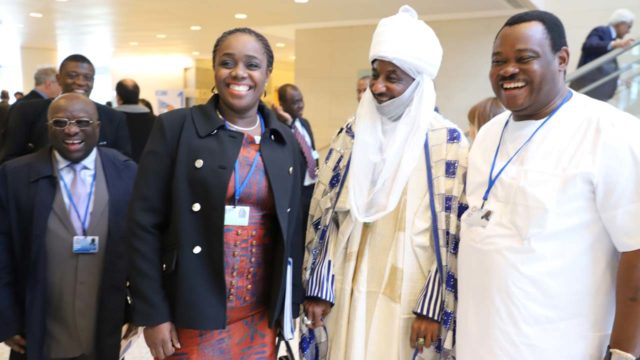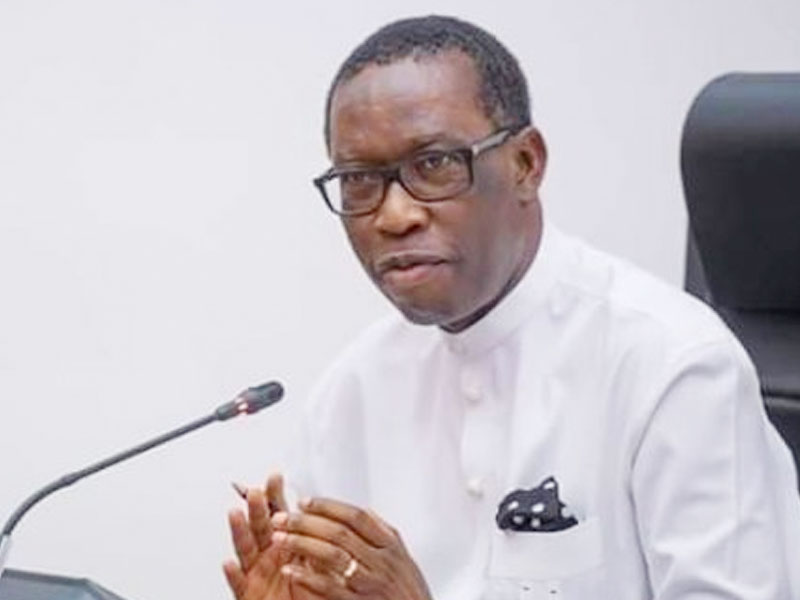The International Monetary Fund (IMF) has expressed concern over Nigeria’s ability to service its external loans estimated at over $18.9billion, given its mono-product economy status and low revenue base.
IMF Director, African Department, Abebe Aemro Selassie, while answering questions on rising debts in sub-Sahara African countries during a press conference on the sidelines of the IMF/World Bank Group meetings in Washington D.C., said notwithstanding the fact that Nigeria’s debt-to-GDP ratio is still okay relative to the average, there are still concerns about its ability to repay the loans.He said: “Our concern for Nigeria is in the area of debt servicing because her revenue base is too low to service the debts.”
But Nigeria’s Finance Minister, Mrs Kemi Adeosun, agreeing that the concerns are legitimate, however maintained there is no cause for alarm.This, she said is because, while some countries debt levels are as high as 55 per cent of their GDP, “Nigeria’s is at less than 20 per cent, so we are not actually one of the countries they are expressing concerns about, however, we will continue to manage our debts very responsibly.”
Adeosun, who spoke to journalists after a meeting of finance ministers and central bank governors, noted that at 20 per cent debt-to-GDP ratio, the Nigerian Government is being cautious not “to grow it aggressively. The debt rate accumulation is slowing down, as we are replacing debts with revenue and refinancing our debts.”
On the other hand, Selassie argued that Debt-to-GDP ratio does not indicate a country’s economic strength, but its ability to build buffers, adding that, “If you look at the average tax to GDP countries in the region, it’s about 15 percent so I don’t see any reason why Nigeria shouldn’t really be pushing towards that target.
“Why this is necessary is to be able to address the tremendous investment needs in education, health, and many other priorities that the government has. So it’s not really revenue collection just for revenue collection sake but the development objectives that the government itself has laid out.”
Selassie noted that Nigeria has had a relatively easy source of revenue from its mono product oil, however earnings from the product is limited to the vagaries of the international market as witnessed in the recent past before oil prices began to spike again.
As such, he said: “There has been less emphasis on tax collection, so using this avenue to enhance tax collection is important. As to how that is to be done, it’s a deeply domestic and political issue. It’s for the government to choose its appropriate tax handles. We can provide advice and suggestions but it is up to the government to find how best to optimise tax collection and in what manner.”
While government is taking international concerns on the country’s rising debts in good faith, Adeosun is quick to add that this does not mean Nigeria will stop borrowing.“That we are listening means it is good advice for all seasons; you listen to good advice, which is manage it sustainable, which is what we are doing; increase our revenue, which is what we are doing, and get our economy growing, improve the tax base so that we can continue to invest in infrastructure because that’s what will lead to industrialisation, and that is what will lead to job growth.”Not even the fact that Nigeria required over N2trillion to service the loans is a big worry because as she put it, “It is expected”.if you look at the framework that sat behind the ERGP; I don’t like to look back, but if you look at the situation we inherited in 2015, it was a collapse in our major source of income, growth had curved, reserves were not there and debts were rising.
“There were two options; one was cut back, lay people off and wait for oil prices to recover or be more aggressive, expand your budget, take on more debts and invest in infrastructure in the hope that you will get growth going to develop more revenue. Now, steps one and two and three of that have been done.
“We’ve expanded our budget, we pumped money into the economy, we made sure recession was not prolonged. We are now back into growth, we need to accelerate that growth and focus on revenue mobilisation, which in turn will reduce our debt pressures.
“That was the strategy we outlined, and that was what we executed so I don’t agree that N2.3 trillion is a large part, it’s relative to what? If we were still in recession, we’d have far bigger problems. I think what people haven’t realised is how much work had to be done to make sure that that recession was as short as possible because that would have caused real pain for the people.
“Some of the ministers that I was in meeting with, they are still in recession; they haven’t been able to get out of it yet. That means real pain for a long time. We shortened it, we had to borrow to do so and we make no apologies for that. That was the right thing to do.
“We invested N1.3trillion in infrastructure, in capital projects that will support industralisation growth, and we are starting to see the investments coming back in. Investors are saying we are opening up here and this is good news for Nigeria so I think we are on the right path.”
Relative to where things were a year ago, inflation accelerating and the very big gap between the official and parallel market rate. Of course, things have improved significantly. This is in no small part due to the reforms that have been undertaken in exchange rate regime as well as capital inflows which with the recovery in oil prices and the uncertainty around exchange rate ameliorating, have been taking place into Nigeria. Inflation has also been decelerated. These are all welcome trends but I do think that there remains a need to move towards having a more simplified exchange rate regime moving forward. That would also be important for the conduct of monetary policy so the idea is to go back to what you have before so that you have a liquid foreign exchange market.




